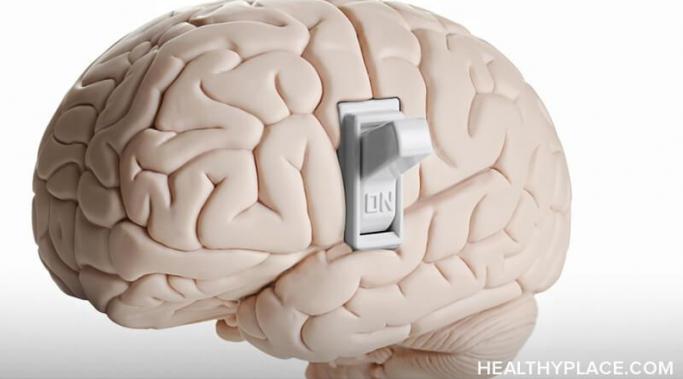I get all manner of comments here and many of them scrape against my bones. Because I know these people. Because I know their brains. Because I am these people.
Sometimes people think because I write or advocate or win awards I am not them, but it is precisely because I am them that I can do these things. It is precisely because I feel their desperation that I can truly write about it. One does write what they know, after all.
Breaking Bipolar
Normally I try to grab the reader's attention in the first few lines of the piece so that you'll want to read the rest. Something snappy, touching or pithy. Normally I try to make sure it's an interesting subject. Usually I try to provide some sort of universal appeal to the piece or at least a good quip.
But today, quite frankly, I'm talking about me.
Let me just come right out and say it: psychiatric medications suck. They just do. Waking up every morning with your first thought to choking down brightly-colored circles, ovals and squares is a bad way to start the day. Similarly, having your last act at night be downing medication to induce what used to be the natural process of sleep is equally unfortunate.
But psychiatric medications are a reality for people with a mental illness. They are important. In fact, for many of us, without them we would have no chance at a life at all.
So if we admit we hate them, but admit we have to take them, how does one manage to stay on psychiatric medications?
I had a VNS implanted about three years ago. The surgery involved two incisions, one under the left arm and one on the left lower front of my neck. My neurosurgeon promised a scar between 1-3 inches but it’s probably closer to four. Of course, I would much rather he get the surgery right and have a bigger scar than the other way around. Someone messes up your vagus nerve and you know about it, pretty much forever.
Vagus nerve stimulation (VNS) is exactly what it sounds like--stimulation of the vagus nerve in your neck. Stimulation takes place by using electrical impulses (a nice way of saying shocks). When the vagus nerve is stimulated, that stimulation is then carried to various other parts of the nervous system and this is what is thought to be its method of action. This stimulation may alter neurotransmitters like norepinephrine and GABA.
OK, I know, that’s complicated. In short, they zap a nerve in your neck and that’s carried to the brain where it does stuff.
I know that as a semi-public person with bipolar disorder I am supposed to beam hope. I am supposed to remind people of it, write about it, speak about it, and give it to everyone wrapped in a shiny happy wrapper.
I don’t do this.
There is, without doubt, hope to be had, out there in the bipolar treatment world, but that doesn’t mean I particularly feel too strongly about it personally.
If you’ve been diagnosed with a major mental illness, you’re probably not leaving the doctor’s office without a prescription in-hand. There’s a good reason for this: people only get help when they’re in bad shape. When people are in bad shape, medications work the most quickly and the most reliably (except electroconvulsive therapy, but that isn’t generally a first-line treatment for a host of reasons).
So, if you’ve just been handed you first prescription with incomprehensible handwriting and a drug name with too many syllables, what’s a person to do? Well, you can start by following these Psych Med Commandments.
There are exactly two settings on my dial: blow your mind and blow your brains out. I’m bipolar. We’re like that.
Not surprisingly, the sex mostly happens on the blow your mind setting.
Those of you who follow me may have gleaned that I've been having trouble getting a psychiatrist. Basically, I was finally allowed to see one and she threw up her hands, told me to give up and that I was never going to get any better. This is one of the worst things I have ever been told, and personally, I think is unacceptable on pretty much every level.
However, yesterday I managed to see someone new, and this poses its own challenges.
A few weeks ago I wrote an article on the worst things to say to a person with a mental illness. This ended up becoming a very popular article. I think that’s because most of us have heard some or all of these dismissive things from people in our lives.
But a commenter posed an excellent question: What are the best things to say to someone with a mental illness?


